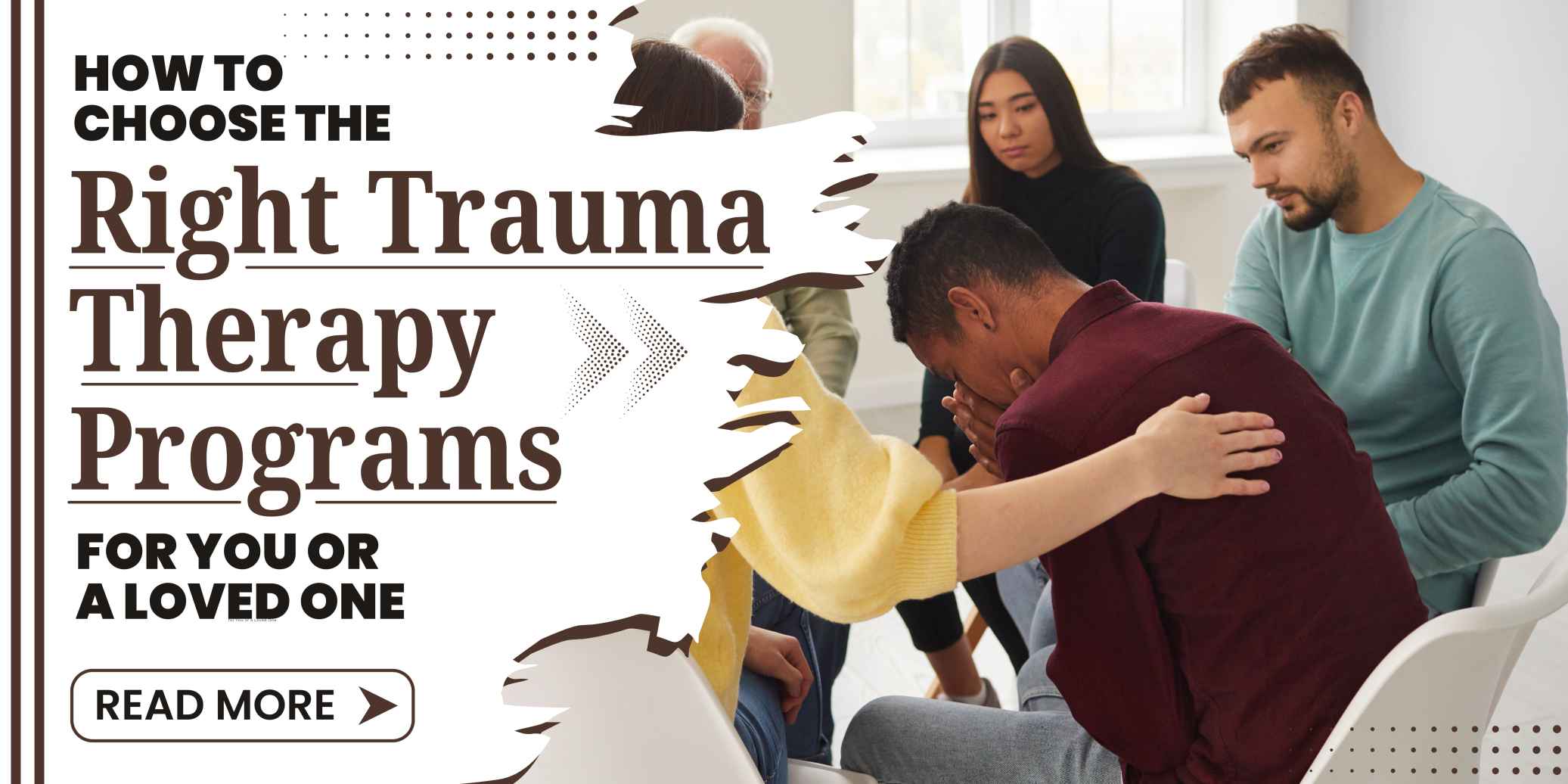How to Choose the Right Trauma Therapy Programs for You or a Loved One


If you know that someone close has undergone some trauma, it is very hard. In fact having to decide the right trauma therapy treatment can be quite unsettling if you do not know how to go about things. Selecting a trauma therapy program is a critical decision that can profoundly impact recovery and the overall well-being of an individual. So, this is the reason you must pay a lot of attention and do your research before you decide on trauma counseling near me.
Trauma therapy is a specialized field that addresses the psychological as well as emotional wounds that are caused by distressing events that have taken place in the life of a person. These programs vary widely in their approaches, techniques, and philosophies. So, what is pertinent is that you take into consideration crucial factors before choosing the right Outpatient trauma therapy program.
Mentioned below is a detailed guide that will help you or your loved one find a suitable trauma therapy program.

Trauma therapy focuses on helping individuals process and recover from their traumatic experiences. It can be abuse, violence, or any accidents. People who face natural disasters also need trauma therapy. It includes various evidence-based modalities that are designed in a way to reduce the symptoms of post-traumatic stress disorder (PTSD), anxiety, depression, and other trauma-related conditions.
There are different types of trauma therapies. These include Cognitive Behavioral Therapy (CBT), Trauma-Focused Cognitive Behavioral Therapy, group therapy, Dialectical Behavior Therapy (DBT), Eye Movement Desensitization and Reprocessing (EMDR), etc.
When you have a lucid understanding of the kinds of therapies that are available you can identify which programs align with your specific needs and needs of your loved one.
1- Identification of Specific Needs of an individual- No two people are the same. What one person might need can be different from what another person might require. Trauma can stem from a single event or a series of events. Understanding the kind of trauma that a person has experienced such as combat trauma, childhood abuse, or sudden loss can help narrow down programs that specialize in that area. It is vital to evaluate the symptoms of the patient before you narrow down the program. Symptoms like flashbacks, nightmares, hypervigilance, or emotional numbness call for very specific treatment approaches. If there are any additional challenges such as addiction, depression, or anxiety, you can go in for dual-diagnosis programs that address both trauma and co-occurring disorders.
2- Research Types of Therapy Programs- Different kinds of therapy programs are available for the patient. Some patients go in for outpatient trauma therapy programs. In such programs, the patient can stay at home and attend sessions when needed. These are suitable for those with milder symptoms or strong support systems. Then there are immersive inpatient programs. They offer round-the-clock support to the patient in a structured environment. Such programs are ideal for severe trauma cases. Then patients can opt for individual or group therapy. Some people thrive in one-on-one settings, while others find comfort in shared experiences. Some centers specialize in specific traumas, such as military PTSD or childhood abuse, while others offer a broad spectrum of trauma care. Opt for a specialized or generalized program as per your need.

So, these are some things to bear in mind when you select the right trauma therapy program.
When you call our helpline, an admissions navigator is there to listen to you, answer any questions you have, and provide the support that you need—all 100% confidentially.

Family involvement can hugely enhance the recovery process. Some programs offer family therapy sessions, workshops, or educational resources to help loved ones understand trauma and provide effective support. Encouraging active participation fosters a supportive healing environment.
We’ll instantly check the coverage offered by your insurance provider.
Choosing the right Trauma therapy program requires careful consideration of individual needs, program quality, and practical logistics. A well-suited trauma therapy program can provide the tools and support necessary for healing and resilience. Take the time to research, ask questions, and evaluate options thoroughly to ensure the best outcome for you or your loved one. Bear in mind that seeking help is the first step towards getting better and recovering. For the best treatment options for your near and dear ones get in touch with the experts at gorehab.com. With them, you are in safe hands as they offer the best treatment options.